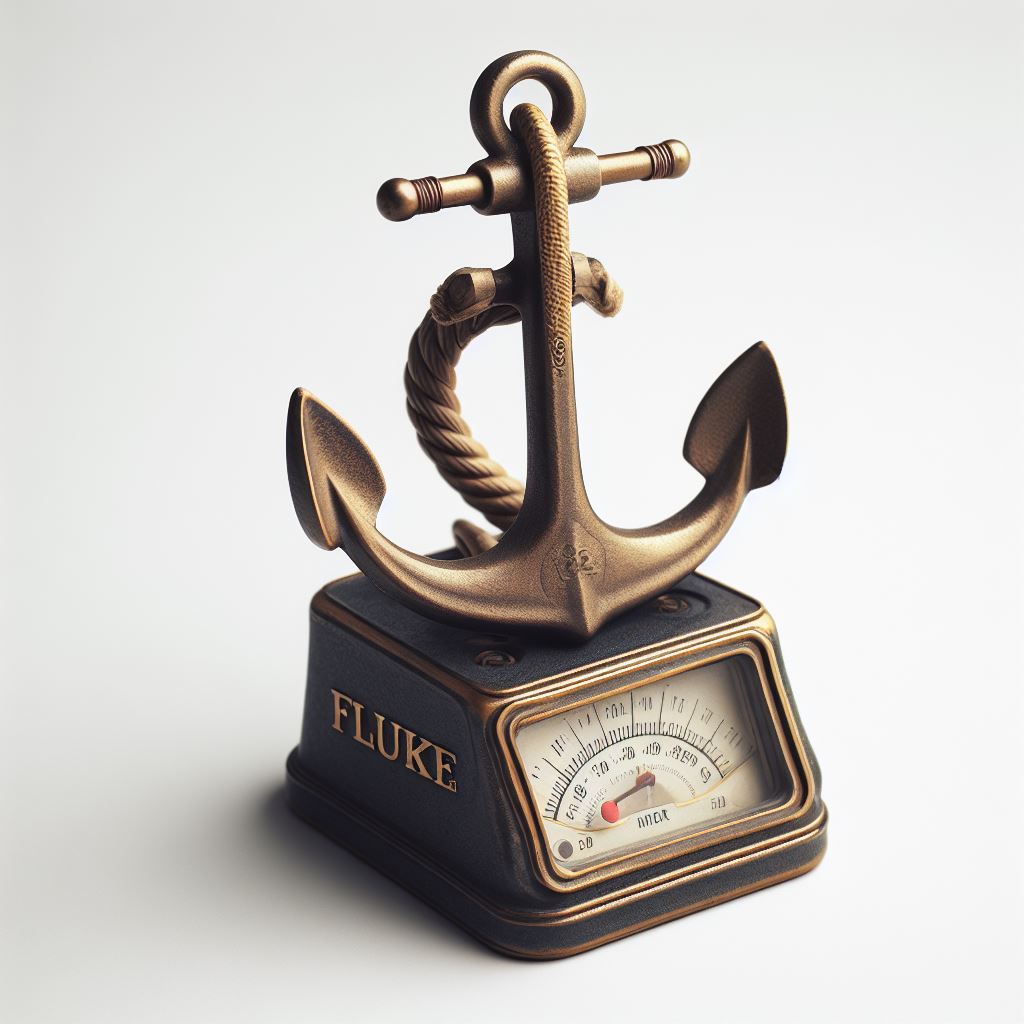In this article, we will guide you through the factors to consider when determining the perfect anchor weight for your bass boat. From the size of your boat to the type of water you’ll be fishing in, we’ve got you covered. So sit back, relax, and let us help you make your fishing trip a success with the right anchor weight.
1. Boat Size
When it comes to choosing the right anchor weight for your bass boat, the size of your boat plays a crucial role. Boat size is determined by two main factors: length and weight.
1.1 Length
The length of your boat is an important consideration when selecting an anchor weight. A longer boat will generally require a heavier anchor to ensure it stays securely in place. The length of your boat affects its ability to resist wind and current, so it’s important to choose an anchor that can provide enough holding power.
1.2 Weight
In addition to the length, the weight of your boat is another factor to consider when determining the right anchor weight. A heavier boat will require a stronger anchor to hold it in place, especially in rough water conditions. It’s important to choose an anchor that can handle the weight of your boat to prevent drifting or potential damage.
2. Water Conditions
The water conditions in which you will be boating are crucial in determining the right anchor weight. Several factors come into play, including the depth, current, and bottom type.
2.1 Depth
The depth of the water you will be boating in is an essential consideration when selecting an anchor weight. In shallower waters, a lighter anchor may be suitable, while deeper waters may require a heavier one. It’s important to choose an anchor that can penetrate the bottom adequately and provide enough holding power based on the depth you will be navigating.
2.2 Current
The strength and speed of the current are critical factors to consider when choosing the right anchor weight. Stronger currents may require a heavier anchor to ensure stability and prevent your boat from drifting. Assess the strength of the current in the areas you plan to boat to determine the appropriate anchor weight.
2.3 Bottom Type
Different anchor types perform better on specific bottom types. The effectiveness of an anchor can vary depending on whether the bottom is composed of sand, mud, rocks, or vegetation. It’s essential to be aware of the bottom type you will encounter and select an anchor that is designed to perform well in those conditions.
3. Anchor Types
There are several types of anchors available in the market, each with its own unique features. The choice of anchor type depends on various factors, including personal preference and the conditions in which you will be boating.
3.1 Grappling Anchor
Grappling anchors, also known as plow or scoop anchors, are popular choices for bass boat owners. They have excellent holding power and work well on different bottom types, including mud and sand. Grappling anchors are designed to dig into the bottom and provide a secure hold, even in challenging conditions.
3.2 Claw Anchor
Claw anchors, also known as Bruce anchors, are versatile and can provide reliable holding power on various bottom types. They have sharp, curved flukes that dig into the bottom when tension is applied. Claw anchors are known for their ease of use and ability to reset themselves if the wind or current changes direction.
3.3 Fluke Anchor
Fluke anchors, also known as Danforth anchors, are lightweight and easy to handle. They work well on sandy or muddy bottoms and are particularly effective in areas with strong currents. Fluke anchors have sharp-edged flukes that bury themselves into the bottom, providing a secure hold.
4. Holding Power
Holding power is a crucial aspect when selecting an anchor weight for your bass boat. It refers to an anchor’s ability to keep your boat in place without dragging or drifting. Two key factors contribute to holding power: holding strength and wind factor.
4.1 Holding Strength
The holding strength of an anchor is determined by its design and construction. Anchors with better holding strength are generally heavier and have a larger surface area to provide greater resistance against external forces. Consider the size and weight of your bass boat and choose an anchor that can handle its weight while providing sufficient holding power.
4.2 Wind Factor
Wind is one of the main factors that can cause your boat to drift or drag. It’s important to account for the wind factor when choosing an anchor weight. In areas with strong winds, a heavier anchor is necessary to counteract the force and keep your boat securely in place. Always consider the prevailing wind conditions in your boating area and select an anchor that can withstand the wind factor.
5. Type of Boat Flooring
The type of flooring on your bass boat is another factor to consider when determining the right anchor weight. There are two common types of boat flooring: fiberglass and aluminum.
5.1 Fiberglass
If your bass boat has a fiberglass flooring, it is generally more sensitive to scratches and damage. Therefore, it’s important to choose an anchor that won’t cause any harm to the boat’s surface. Anchors with protective coatings or rubberized ends are ideal for fiberglass flooring as they minimize the risk of scratching or causing any damage.
5.2 Aluminum
Aluminum boat flooring is generally more durable and can withstand rougher conditions. This type of flooring is less prone to damage from anchors. However, it’s still important to consider the weight and design of the anchor to ensure it doesn’t cause any unnecessary wear or damage to the boat.
6. Fishing Style
Your preferred fishing style can also influence the choice of anchor weight for your bass boat. There are two main fishing styles to consider: casting and trolling.
6.1 Casting
If you primarily engage in casting while fishing, it’s important to select an anchor that securely holds your boat in position. This allows you to focus on casting without worrying about constant drifting or repositioning. A heavier anchor is often preferred for casting as it provides better stability and reduces the chances of your boat moving.
6.2 Trolling
For those who prefer trolling as their fishing style, a lighter anchor may be more suitable. Trolling involves moving your boat at a slow speed while dragging fishing lines behind. A lighter anchor is easier to lift and stow away, making it more convenient for frequent repositioning.
7. Boat Accessories
When determining the right anchor weight for your bass boat, it’s important to consider any additional boat accessories that may affect the anchoring process. Two key accessories to keep in mind are livewells and trolling motors.
7.1 Livewells
Livewells are compartments on a bass boat used to keep live bait or caught fish alive until they can be released or stored. These compartments add weight to your boat and can affect its stability. It’s important to account for the additional weight when selecting an anchor to ensure it can handle the combined weight of your boat and any live bait or fish in the livewells.
7.2 Trolling Motor
Trolling motors are electric motors used to move a boat quietly through the water for fishing purposes. They can add weight to the front or back of the boat, potentially affecting its balance and handling. Ensure that the anchor weight chosen is suitable for the weight distribution of your boat, taking into consideration any additional weight caused by the trolling motor.
8. Safety Considerations
When choosing the right anchor weight for your bass boat, it’s crucial to consider safety. Two main safety considerations to keep in mind are emergency situations and load distribution.
8.1 Emergency Situations
In the event of an emergency, such as severe weather conditions or mechanical failures, the anchor plays a crucial role in keeping your bass boat secure. It’s important to choose an anchor weight that can provide sufficient holding power in case of unexpected situations. A heavier anchor can offer better stability and ensure your boat remains in place during emergencies.
8.2 Load Distribution
Proper load distribution is essential for the overall stability and safety of your bass boat. An anchor weight that is too heavy or too light can affect the balance of your boat, potentially leading to instability or listing. Ensure that the anchor weight chosen is appropriate for the size and weight of your boat, distributing the load evenly without compromising safety.
9. Budget
Budget is often an important consideration when purchasing equipment for your bass boat. When selecting an anchor weight, it’s important to evaluate the anchor pricing and the potential cost of upgrading.
9.1 Anchor Pricing
Anchors come in various price ranges depending on their size, weight, and features. Consider your budget and research different anchor options within your price range. It’s important to strike a balance between affordability and the quality and performance of the anchor.
9.2 Cost of Upgrading
If you already have an anchor but are considering upgrading to a different weight or type, it’s important to factor in the cost of upgrading. Evaluate whether the benefits of upgrading outweigh the cost and ensure it aligns with your budget. Upgrading your anchor can enhance the overall safety and performance of your bass boat, but it’s important to make an informed decision based on your individual needs and financial situation.
10. User Experience
When determining the right anchor weight for your bass boat, it can be helpful to consider the user experience of other boaters. Two valuable sources of user experience include expert advice and personal preferences.
10.1 Expert Advice
Seeking expert advice from experienced boaters, boat dealers, or professionals in the industry can provide valuable insights into the right anchor weight for your bass boat. They can draw on their own experiences and knowledge to guide you in making an informed decision. Consider reaching out to experts in the field or joining boating communities and forums to gather valuable user experiences and recommendations.
10.2 Personal Preferences
Ultimately, your personal preferences and boating style will play a significant role in selecting the right anchor weight for your bass boat. Take into account your individual needs, preferences, and the conditions in which you will be boating. Consider factors such as ease of use, convenience, and any specific features or functionalities that are important to you. By aligning your personal preferences with the practical considerations outlined in this article, you can make a well-informed decision that enhances your overall boating experience.


